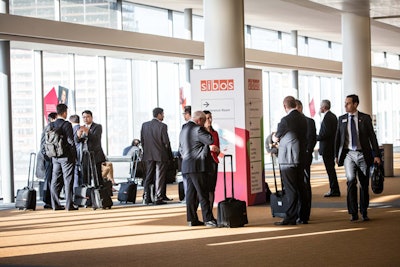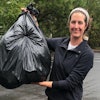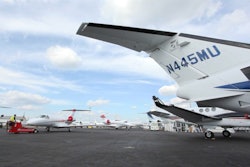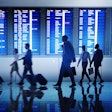
For the first time in the 35-year history of Sibos, the Swift International Banking Operations Seminar, organizers are conducting health screenings to check attendees for possible signs of Ebola. The annual event attracts more than 7,000 financial professionals from 140 countries who come for an exhibition, education sessions, and networking opportunities. But for the event this week, alongside metal detectors at each entrance to the Boston Convention and Exhibition Center are thermal scanners that are checking guests’ body temperatures each time they enter the building.
“Given the nature of Ebola and the way it’s spreading for the moment, we really felt we couldn’t take the risk,” says Sven Bossu, head of Sibos at Swift. “It’s really not intrusive at all. People will hardly notice it. And we did give them communication up front that we would be doing this.”
Organizers developed the health screening strategy and implementation in partnership with International SOS, a company that provides medical and travel security risk services. The thermal scanners are similar to what is used in airports, particularly in Asia, to screen incoming travelers. “If you are looking at an event with thousands of people, you can’t have individual screenings, and heaven forbid you can’t be touching these people. You don’t want to violate their space, nor do you want to slow up the process,” says Dr. Robert Quigley, regional medical director and senior vice president of medical assistance for International SOS. If an attendee’s temperature is outside of normal range, staff on site will take that person aside to recheck it with a handheld device that Quigley says is “more sensitive and specific.” If that reading is also positive, the individual would be transported to a local medical facility.
The conference is not the only event taking precautions against Ebola. In August, concerns about Ebola prompted heightened screenings at a three-day summit between African leaders and President Obama in Washington. “For a large meeting of any variety, they need to have preparation in mind that is very proactive,” Quigley says. In the early stages of planning, he suggests organizers consider the potential risks and issues that could develop based on the event’s location—for example a country where health services might not be adequate—and also where the attendees are coming from. “If the participants are going to be from areas where there are endemic diseases, you need a process or procedure in place to mitigate the risk of transmitting or spreading such diseases in the event someone is contaminated,” Quigley says.
In an emailed statement, a spokesperson for the Centers for Disease Control and Prevention said the agency currently does not recommend screening at United States conferences but noted that planners should work with local health authorities on any strategies. Travelers coming from countries with an Ebola outbreak should have gone through exit screening before leaving those countries, according to the agency, and the C.D.C. also has a system to identify travelers who show signs of infectious disease at international airports and other ports of entry.



















